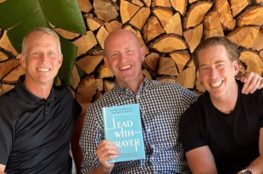“Dad, is that you?” my daughter joked, hearing the click-clunk from my crutches as I walked towards her. Everywhere I go, I announce my presence with the sound of crutches banging on the floor. It feels like a major accomplishment to make it to the next room and a cause for celebration when I’m able to hop up a flight of stairs. Last month, while playing soccer in an over-40 league, I collided with the goalie. He won the ball, and I lost my ankle, as it bent into a horribly unnatural position. The result is a cast, some crutches, and a temporary end to my independence.
As I’ve hobbled along over the past few weeks, I’m suddenly noticing that not all buildings are friendly to people with crutches. In some places, there aren’t ramps or elevators, and some restrooms have such low sinks that they require a one-footed Pilates position to use. Other walkways are like obstacle courses, cluttered with hazards eager to make you sprawl awkwardly on the floor.
I’ve never thought much about buildings and disability access—until now. In fact, years ago I served on a church building committee. Due to a building code, we were required to install a ramp, and I distinctly remember wondering, “Is this really necessary?” when seeing the additional expense.
With disturbing ease, I would have unintentionally put up an obstacle to someone with a physical challenge entering a building and (even worse) a place of worship. Why? Because the issue didn’t directly impact me or anyone I knew. The deeper issue, I was severely lacking in empathy.
Empathy for others with physical challenges is growing as quickly as the callouses on my hands. Not that there is ever perfect understanding; the fact that I should be back on my feet in six weeks makes my situation pointedly different from friends who have longer-term challenges. But I hope that my current situation affords me a short-term glimpse of the world, and long-term empathy as a result.
In our fractured world, what might happen if we all started with a little more empathy? If we slowed down to try to understand before rushing to judgment? If we truly listened to others, especially those with whom we disagree? If we forcefully muzzled our critique and actively opened ourselves up to understanding?
James, the half-brother of Jesus, encouraged, “Everyone should be quick to listen, slow to speak…”
If we took time to imagine what it’s like to walk in another person’s shoes (or with their crutches), I’m convinced the world would be a much more gracious place. And as I’m learning, that’s where true healing begins.




November 9, 2016
Peter praying for a quick and complete recovery
We understand the decision about Haiti.
November 10, 2016
Thank you, Emmajane!